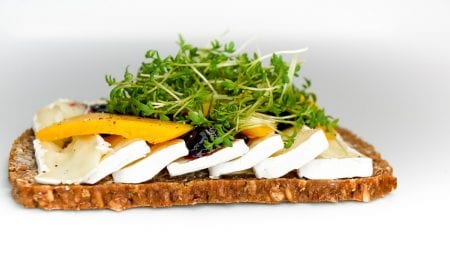 In our minds, snacking is often associated with a bad habit, which unambiguously leads to the appearance of extra pounds. Meanwhile, nutritionists are not at all against a couple of snacks throughout the day. It is important only to observe several rules.
In our minds, snacking is often associated with a bad habit, which unambiguously leads to the appearance of extra pounds. Meanwhile, nutritionists are not at all against a couple of snacks throughout the day. It is important only to observe several rules.
Many modern nutritionists adhere to the concept of fractional nutrition. This means that you need to eat five to six times a day. Meals can be equal in calorie content, and can be broken down into basic ones with higher caloric content and snacks.
Proceeding from it for 8 hours of the working day it is possible to afford to eat three times – to eat the second breakfast, a dinner and a mid-morning snack. If you are late at work later than 19: 00-20: 00, it will be prudent to have dinner in the office, since the last meal should be 3-4 hours before bedtime.
A few words about calories
Our need for calories is determined by sex, age, weight and amount of physical activity. Another important factor is the rate of metabolic processes, but it is difficult to determine independently. Women, leading a sedentary lifestyle, usually need about 1400 calories per day, men – 1800 calories.
If you exercise three times a week, you can increase the daily diet, but insignificantly – only 150-300 kcal.
Based on daily caloric content, it is reasonable to make basic meals for 25% of the total nutritional value, snacks – 10% each. If your daily norm is 1400-1500 kcal, then breakfast, lunch and dinner should be 350-400 kcal, and snacks – 100-150 kcal each.
What to eat to lose weight
Early snack – lunch – the ideal time for fruits and dairy products. Because of the high sugar content, fruit is better in the morning. For 150 kcal you can eat yogurt and a large apple or 50 g of dried fruits, and you can drink a glass of yogurt with a handful of fresh berries. You can also eat a light fruit dessert – jelly, soufflé, mousse, but you need to control the amount of sugar, otherwise the blood glucose level will rise, and the appetite will only swell.
Snacking late in the evening (afternoon snack).
Suitable vegetarian casserole, fresh vegetables with light sauce or salad. If caloric content allows, you can add whole wheat bread and light cheese to the vegetables.
Cottage cheese is an excellent snack option at any time. For lunch, you can use cheese cakes, curd casseroles, cottage cheese with berries and fruits. For a snack – cottage cheese with vegetables or unsweetened casseroles.
And what is prohibited?
The main rule is not to bite sweet. Sugar provokes a sharp release of insulin into the blood, and this, in turn, leads not only to the formation of insulin resistance and a decrease in immunity, but also to an increase in hunger. Sweet is badly reflected on the skin and causes premature aging of the body due to glycation of proteins.
If you really want to eat a chocolate or cake, do it right after the main meal, for example after dinner.
The second rule is – do not drink calories. Any high-calorie drinks – juices, smoothies, except for protein-vegetable, specially balanced by composition, will not satiate you for a long time, and on the calorie content and the amount of sugar, most likely, will go beyond the permissible limits.
Nuts and seeds are also not the best snack, despite the high content of unsaturated fat in them. Nuts are too high in calories (500-600 calories per 100 grams). Our body estimates the saturation not only by calories, but by the volume of food.
5 rules for a healthy snack at the office
- Eat at regular intervals. Drink more water.
- Never eat in the workplace, especially without servings. An open stack of cookies in front of a computer can go unnoticed while you are working on the project.
- If you have tea at work with sweet, bring useful alternatives: curd casserole, cheese, fruit.
- If you have a sedentary job, eat more fiber and dairy products. This will help the intestines cope with inactivity. Fiber is found in all vegetables and many fruits, as well as bran and whole grain bread.
- If you really want to “chew something else,” and the snacks have already ended, try crunchy bran. They quickly saturate and help to lower the level of cholesterol in the blood.
Image credit: Taken
